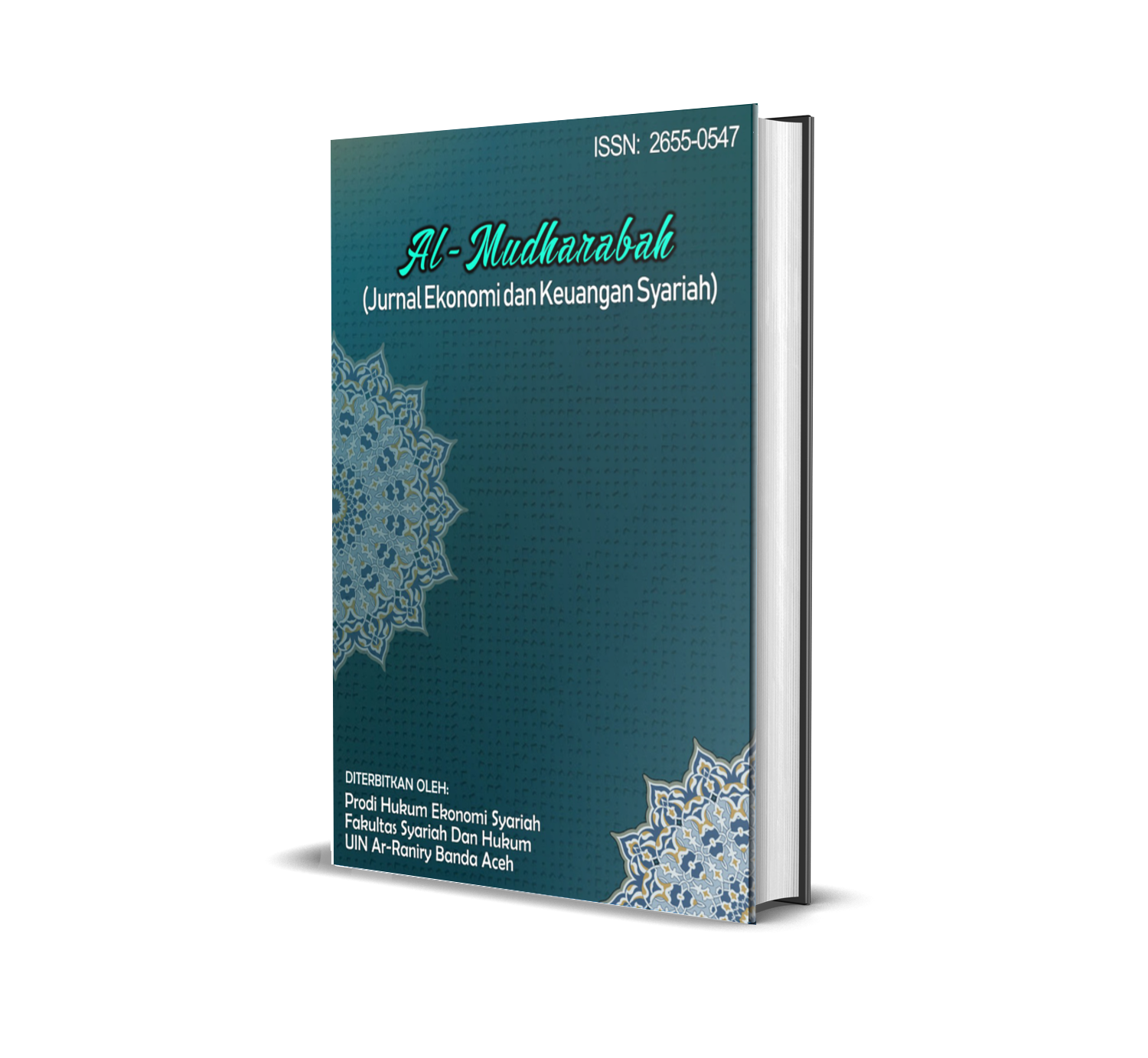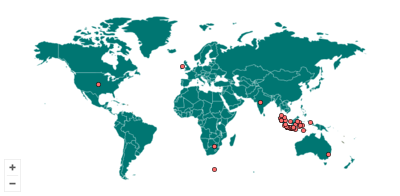ANALYSIS OF THE EXISTENCE OF ELEMENTS OF GHARAR AND TADLIS IN CUTTING THE WEIGHT OF THE SCALES
DOI:
https://doi.org/10.22373/al-mudharabah.v4i2.5642Keywords:
Aceh, hukum Islam, harga timbangan, cabaiAbstract
This research aims to find out how the mechanism of cutting scales in buying and selling chili peppers, and how to analyze the existence of elements of gharar and tadlis in the practice of cutting scales in buying and selling chili peppers. This research uses normative-empirical legal research with descriptive analysis. The data comes from primary data obtained from the field and secondary data obtained from literature research. The results showed that the implementation mechanism for cutting the weight of the scales in the sale and purchase of chili peppers that took place was practiced according to the customs prevailing in the community of Gampong Abo Teubeng. This sale and purchase is carried out with the application of mandatory deductions at the time after weighing. Weighing pieces in this transaction range from 0.5-2kg depending on the size of the sack used by the farmer. If blue line sacks are used, the weight cut ranges from 1-2kg and fertilizer sacks with weight cuts range from 0.5-1kg. The weight cut is also influenced by market prices, if the market price is expensive then the cut will be small, if the price is cheap the cut will be large. Second, according to the review of muamalah fiqh, the existence of elements of gharar and tadlis in the transaction of cutting the weight of the scales in the sale and purchase of chili in Gampong Abo Teubeng shows that there is an element of gharar in the transaction, but the element of gharar is forgiven because it is included in mild gharar. Because the risk of heavy shrinkage is something that cannot be separated from the transaction. The existence of the element of tadlis in the transaction is visibly absent because of the willingness of both parties. However, invisibly it may not be because it is up to the buyer's intention. If they intend to gain more profit from the cut in the scales then it falls into tadlis. And if he does not intend to gain more profit then it is not included because it is in the pleasure of both parties when dealing.
References
Achmad, Yusnedi. Aspek Hukum Dalam Ekonomi. Yogyakarta: Deepublish, 2015.
Adam, Panji. Hukum Islam: Konsep, Filosofi dan Metodologi. Jakarta: Sinar Grafika, 2021.
Afra, Cut, Nahara Eriyanti, and Nasr Mohamed Arif. ‘SETTLEMENT OF DEFECTS IN MURABAHAH FINANCING AT BANK ACEH SYARIAH REGIONAL BIREUEN, INDONESIA’. JURISTA: Jurnal Hukum Dan Keadilan 7, no. 2 (31 December 2023): 201–21. https://jurista-journal.org/index.php/jurista/article/view/78.
Ali, Saifullah, Zalva Amalia, and Yusriaina Yusuf. ‘THE APPLICATION OF MURABAHAH CONTRACTS IN THE INSTALMENT SERVICES OF DHUAFA PARTNER COOPERATIVES IN INDONESIA’. JURISTA: Jurnal Hukum Dan Keadilan 7, no. 2 (17 November 2023): 119–43. https://doi.org/10.1234/jurista.v7i2.70.
Ash-Shiddieqy, Teungku Muhammad Hasbi, 2000, TAFSIR AL-QUR'ANUL MAJID AN-NUUR, Semarang: Rizki Putra Library.
Attirmidzi, Muhammad ibn Isa. tt. Sunan Attirmidzi, Egypt: Syirkah Maktabah Wa Matba'ah Mustofa Albayi.
Djazuli, A., 2006, Rules of Jurisprudence: Rules of Islamic Law in Resolving Practical Problems, Jakarta: Kencana.
Fahmi, Chairul. HUKUM DAGANG INDONESIA. Banda Aceh: Bandar Publishing, 2023. https://bandarpublishing.com/hukum-dagang-indonesia/.
———. ‘Pajak Dalam Syariat Islam: Kajian Normatif Terhadap Kedudukan Wajib Pajak Bagi Muslim’. Ekbisi 5, no. 1 (2010). https://ejournal.uin-suka.ac.id/syariah/Ekbisi/article/view/2648.
———. ‘Revitalisasi Penerapan Hukum Syariat Di Aceh (Kajian Terhadap UU No.11 Tahun 2006)’. TSAQAFAH 8, no. 2 (30 November 2012): 295–310. https://doi.org/10.21111/tsaqafah.v8i2.27.
———. ‘The Impact of Regulation on Islamic Financial Institutions Toward the Monopolistic Practices in the Banking Industrial in Aceh, Indonesia’. Jurnal Ilmiah Peuradeun 11, no. 2 (30 May 2023): 667–86. https://doi.org/10.26811/peuradeun.v11i2.923.
Hasbi Ash-Shiddiqie. Pengantar Fikih Muamalah. Jakarta: Sinar Bintang, 2021.
Siddiq-Armia, Muhammad. Penentuan Metode Dan Pendekatan Penelitian Hukum. Edited by Chairul Fahmi. Indonesia: Lembaga Kajian Konstitusi Indonesia (LKKI), 2022.
Sabiq, Sayyid, 2013, Fiqh Sunnah, Jakarta: Pena Pundi Aksara
Syarifuddin, Amir, 2003, Outlines of Jurisprudence, Jakarta: Kencana
Sidiqi, Muhammad Nejjatullah. 1996. Economic Activity in Islam. Jakarta: Bumi Aksara.
Sukandarrumidi, 2006, Research Methods, Yogyakarta: Gadjah Mada University Press
Downloads
Published
How to Cite
Issue
Section
License
Copyright (c) 2024 Al-Mudharabah: Jurnal Ekonomi dan Keuangan Syariah

This work is licensed under a Creative Commons Attribution-NonCommercial-ShareAlike 4.0 International License.












